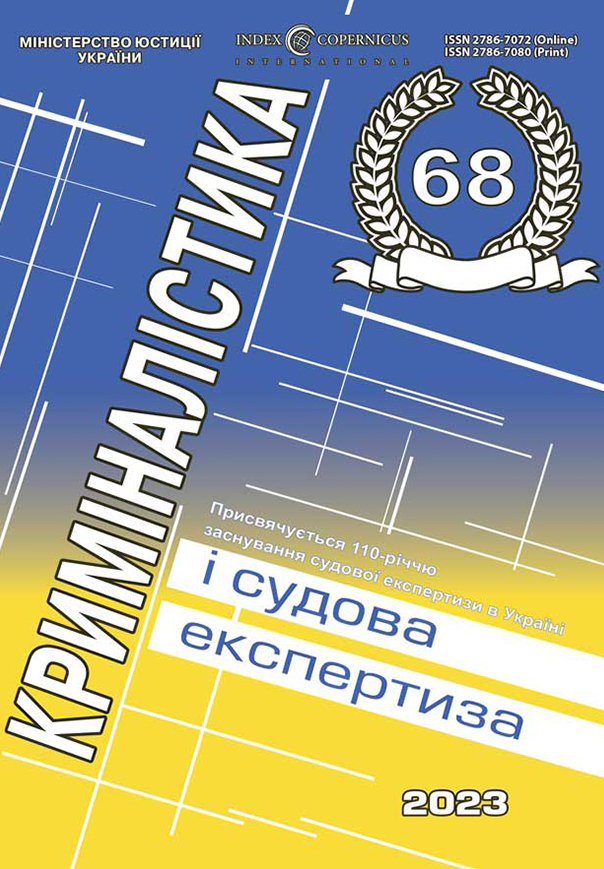
DOI: https://doi.org/10.33994/kndise.2023.68.13
O. Tsilmak
The article states that the investigator must be well aware of the various reasons for conscious or unconscious misrepresentation or reporting of false testimony by a person. These reasons are conditionally divided by the author into psychological, social and psychophysiological. The essence of the main psychophysiological mnestic reasons for a person’s unintentional giving of unreliable testimony during investigative (search) actions is revealed. The author includes repressed memories and types of memory disorders as such causes: dysmnesia (hypermnesia, hypomnesia and different variants of amnesia (anterograde, retrograde, delayed, fixation, reversal, congrats and progressive) and paramnesia (confabulation, pseudo reminiscence, cryptomnesia, echomnesia and phantasms). The meaningful essence and peculiarities of the influence of repressed memories and types of memory disorders (dysmnesia and paramnesia) on the person’s testimony are revealed.
It is emphasized that since the preliminary investigation and trial process relies on the memory of the suspect, the accused or the witness, any kind of memory impairment can have significant consequences in these areas. Because it gives reason to doubt the person’s testimony and confessions. Therefore, the investigator in the process of carrying out investigative (search) actions must be vigilant and prudent in order to verify the information and collect and obtain accurate information from the subject of the pre-trial investigation. And for this, he must know well the substantive essence of the main types of violations of cognitive, volitional, emotional and motivational processes and states, as well as the criteria for their diagnosis.
Key words: verification, mnestic reasons, unreliable testimony, preliminary investigation, memory impairment, investigative (search) actions, investigator.










